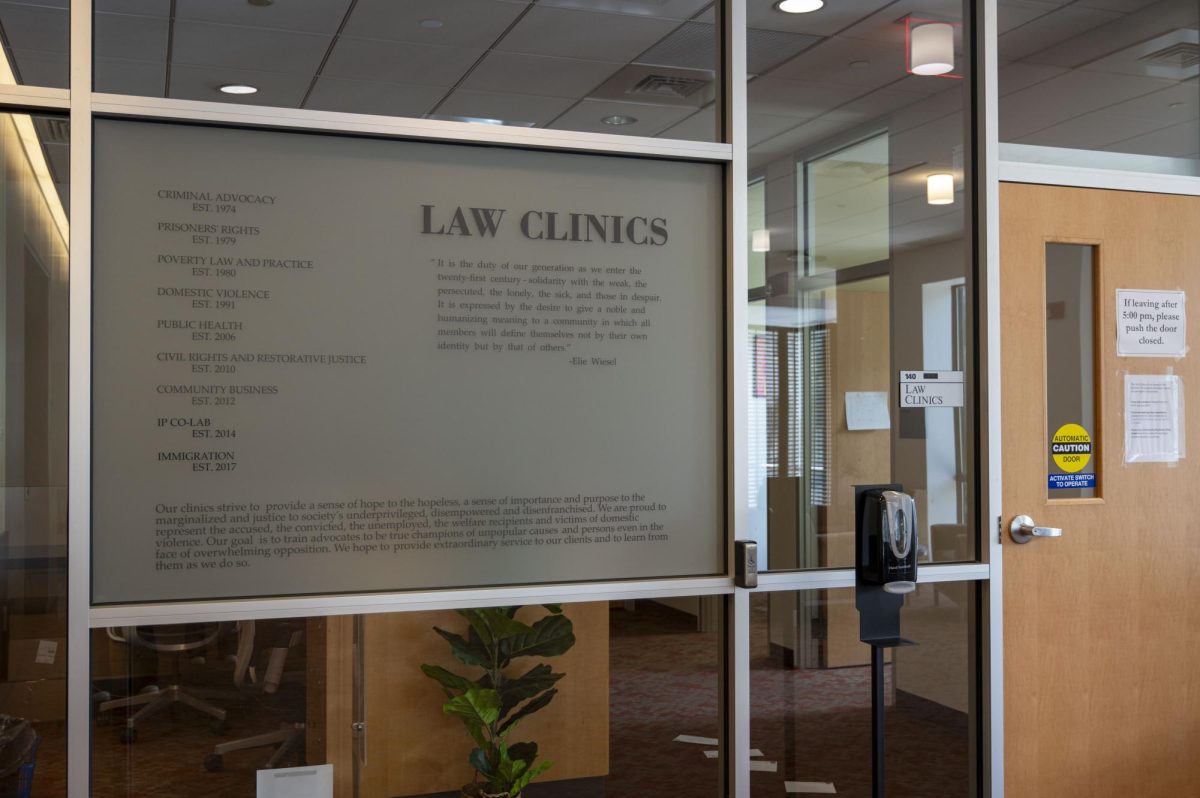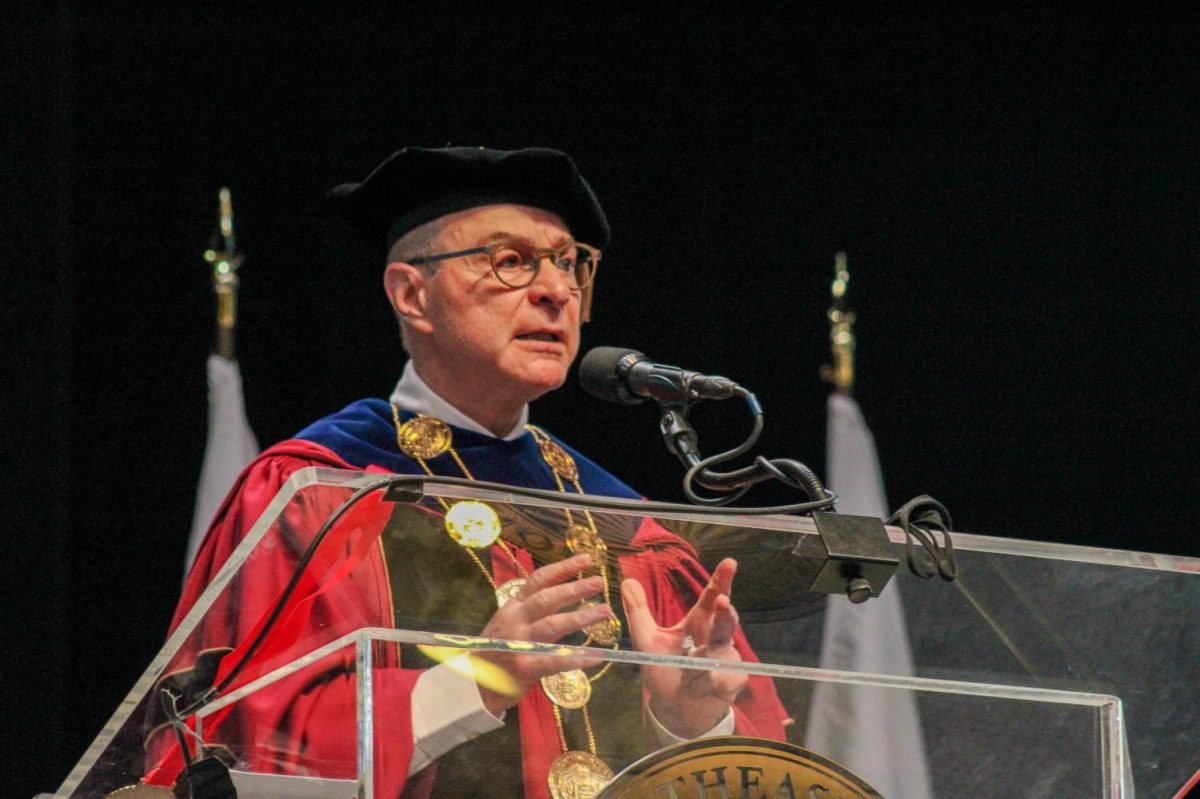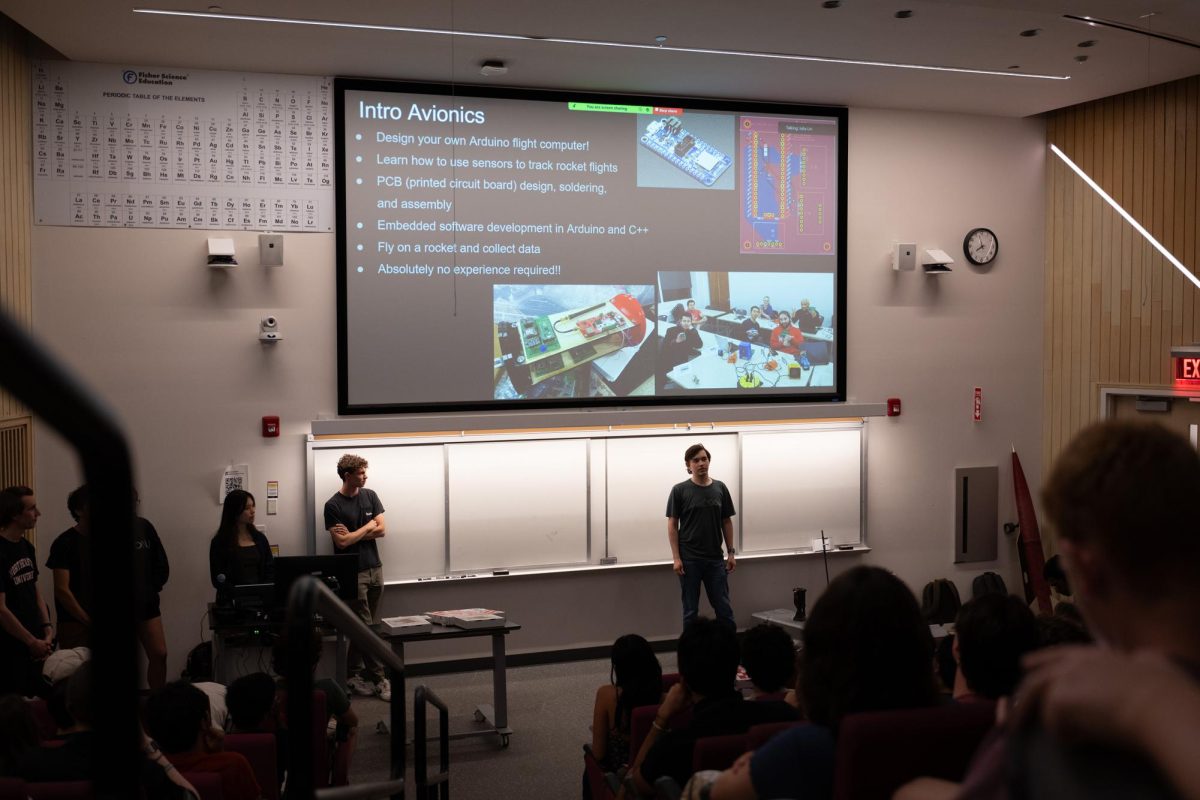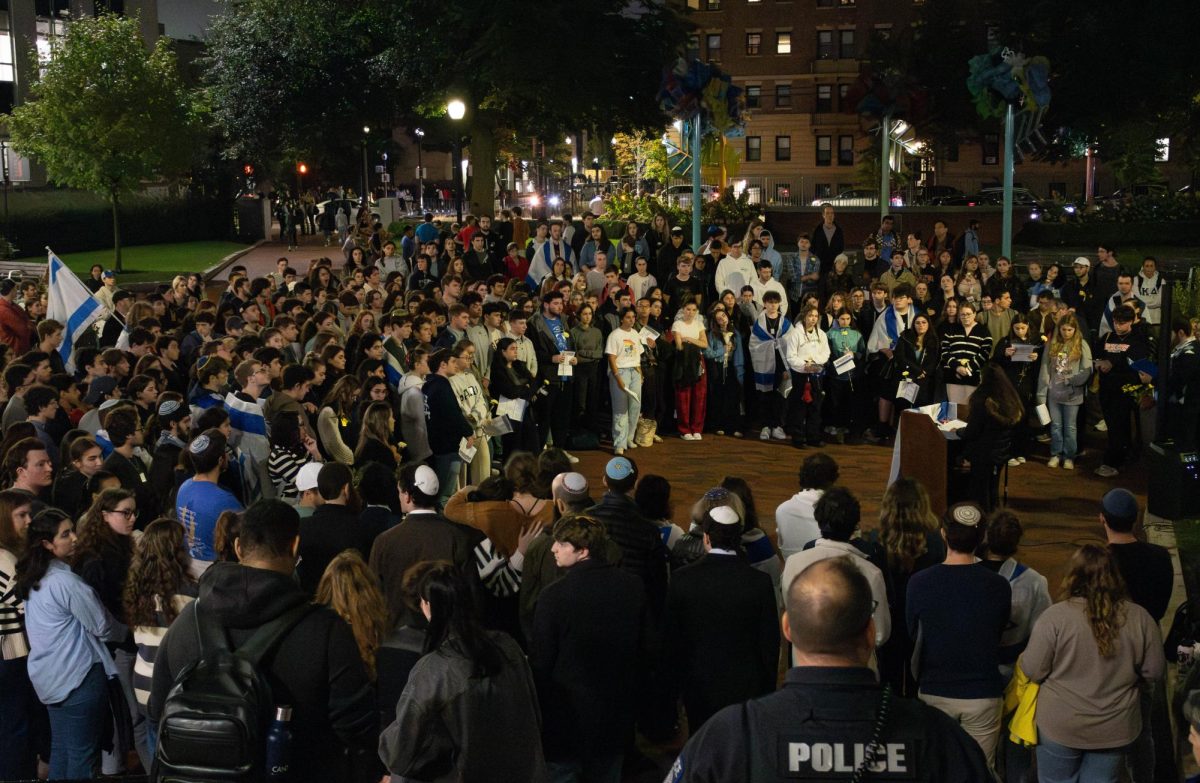Administrators from the Office of Student Conduct and Conflict Resolution (OSCCR) and members of the Student Conduct Hearing Board held a pair of mock hearings, during activities period yesterday and on Tuesday evening, to show students how the process works.
The event was directed both at students curious about how OSCCR works behind closed doors and for those interested in joining the Student Conduct Hearing Board, said Valerie Randall-Lee, director of OSCCR.
Tuesday night’s mock hearing revolved around the fictional case of student Noah Brains, who was accused of using and selling marijuana and cocaine to friends and for having drug paraphernalia in his residence hall room.
The process was run as it normally would, said Tanner Chesney, OSCCR assistant director, though some parts were sped up so that the hearing could be shown in a reasonable amount of time.
“This is a Reader’s Digest of what a board hearing is like,” Chesney said.
Before the hearing begins, Chesney said, the student has a pre-hearing meeting, where an OSCCR administrator discusses the hearing process with the charged student. Since the student will only have certain opportunities during the meeting to ask questions directly to the complainant, they are encouraged to write them down, Chesney said. If a student wants to avoid a hearing, they can accept responsibility for the charges against them, he said.
“This process, this is not a court room,” Chesney said.
He said students charged with a Code of Student Conduct violation are not defendants, but instead “charged students.” The accuser or prosecution is the “complainant.” While there is an OSCCR official present during the hearing, it is the Student Conduct Hearing Board that determines if a Code of Student Conduct violation occurred.
The mock hearing began with the complainant reading a statement of what had occurred, usually the report from the Northeastern University Division of Public Safety (NUPD) or the Residence Director. The charged student then has the opportunity to ask the complainant questions, and then the hearing board can ask questions. After, the process is reversed, with the charged student reading his statement and the complainant and hearing board asking their questions.
The charged student and the complainant are allowed to bring witnesses to support their case, and the charged student can provide character statements from people they know. Students are not, however, able to bring legal representation to the hearing, though OSCCR provides an advisor to assist before and during the proceeding, Chesney said.
“Lawyers aren’t part of our process because this isn’t a criminal court or a court proceeding,” he said.
After the hearing, the complainant and charged student are dismissed and the hearing board votes whether or not it will hold a student responsible for the charges. The decision needs a simple majority of the five person board to hold the student responsible, something Chesney called a “more likely than not” method rather than the “beyond a reasonable doubt” standards set in legal cases.
The board then debates and decides on the sanctions and consequences that will go along with the charge.
When making its decisions, the Student Conduct Hearing Board considers the nature of the violation, the severity of damage and injury of the case and the student’s past disciplinary history.
Students may appeal the board’s decision if they think there was an error in process or new information relevant to the case emerged either during or after the hearing. Students facing suspension or expulsion can also, within five business days, request their consequences be reexamined if they feel the punishment is too extreme, Chesney said.
“If I ever have a student facing suspension, I say go for it,” he said.
The members of the Student Conduct Hearing Board said they are trying to find out what hapled to the person getting in trouble.
“When a student is brought before the board, the five of us are trying to find out what went on,” said Emily Hoffman, a sophomore criminal justice major.









